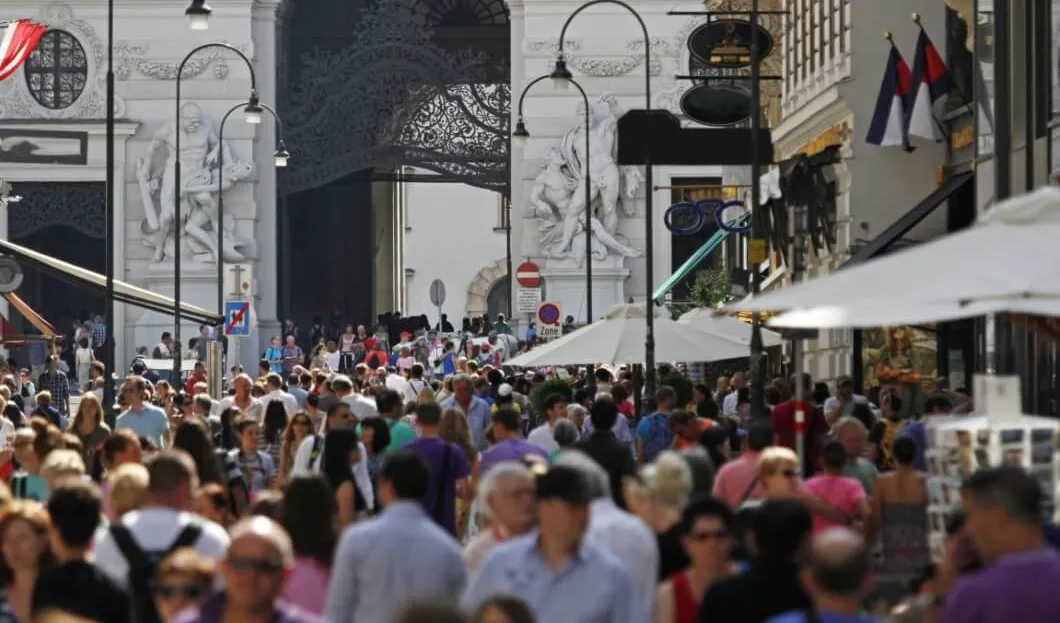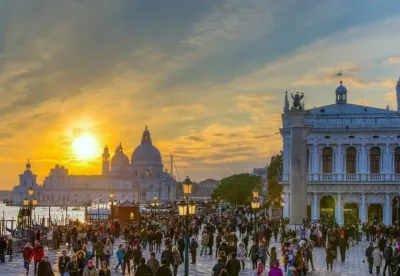
Tourism is experiencing unprecedented growth, making travelers a billion-dollar industry for destination countries. However, the negative consequences of mass tourism are increasingly coming to light.
Popular travel destinations are implementing new measures to combat overtourism. For example, Venice has doubled its entrance fee, Hallstatt has constructed a wall to deter selfies, Amsterdam has banned new hotel constructions, and Barcelona plans to prohibit Airbnb rentals starting in 2028.
Some well-known international destinations have recently introduced or plan to adopt new measures against mass tourism.
Italy: Venice Doubles the Entrance Fee
Italy has long been a leader in addressing the impacts of mass tourism, particularly in Venice. The historic city sees around 30 million travelers each year. In 2024, Venice implemented an entrance fee of 5 euros for day visitors for the first time. This fee will increase to 10 euros starting April 18 for those who do not register in advance.
Croatia: Tightening the Screws in Dubrovnik

Like many other popular destinations, Dubrovnik has struggled with tourist crowds for years. The city has limited the number of cruise ships allowed to dock and requests that visitors refrain from walking through the old town in swimwear.
Last year, the mayor proposed a complete ban on constructing new apartments within the city. Although this comprehensive ban was not legally possible, a restriction was implemented to prohibit furnishing new tourist apartments in existing apartment buildings.
Netherlands: Amsterdam Bans New Hotel Openings
Amsterdam has been working for years to curb pub crawls and the excesses associated with party tourism. In 2024, the city government banned the construction of new hotels.
In 2021, Amsterdam introduced a unique limit of 20 million visitors annually. This measure aims to ensure that the city remains livable for its residents.
Greece: Athens Limits Access to the Acropolis
The Acropolis, a famous architectural ensemble in Athens, symbolizes ancient Greek high culture. To protect this historic monument and ensure a pleasant experience for visitors, authorities have restricted access to 20,000 people per day in 2023. Additionally, guests are required to book their visit in advance.
Austria: Hallstatt Develops a Wall against Selfies
In recent years, the number of visitors to Hallstatt has risen significantly. This UNESCO World Heritage Site gained fame as the inspiration for the untrue kingdom of Arendelle in Disney's film Frozen. However, the influx of tourists taking selfies has become overwhelming for the local authorities. In response, the municipality has erected wooden fences at a popular Instagram spot to block the view of the lake.
Czech Republic: Prague Bans Disguises and Pub Crawls
The Czech capital, Prague, is actively working to its image as a low-cost destination for beer tourists fighting mass tourism. As part of this effort, the authorities have banned guided pub crawls. Additionally, the city plans to impose a ban on party costumes. In the future, Prague aims to attract more "cultured" tourists.
Japan: Climbing Mount Fuji Will Be More Expensive
In 2024, Japan welcomed 37 million foreign visitors, surpassing previous numbers. To manage tourist traffic effectively, the authorities are implementing various price measures.
Last year, a fee of 2,000 yen ($12) was introduced for climbing Mount Fuji, with daily visitor numbers capped at 4,000. This summer, the authorities plan to double the fee and apply it to additional routes.
Spain: Barcelona Plans Airbnb Ban
Barcelona is taking significant action against mass tourism, similar to Amsterdam. Last year, the city announced a ban on short-term rentals like Airbnb, which will take effect in 2028.
Ecuador: Galapagos Tax to Be Doubled
Excessive tourism threatens the unique flora and fauna of the Galapagos Islands, which are also a significant source of revenue for the state of Ecuador. In 2024, Ecuador raised the admission tax for the national park from $100 to $200.
Indonesia: Bali Fights Backpackers with Tax
The authorities in Bali find their reputation as a "cheap island" problematic. Last year, to address the influx of backpackers, they introduced a fee of 150,000 rupiah, approximately US$9.










